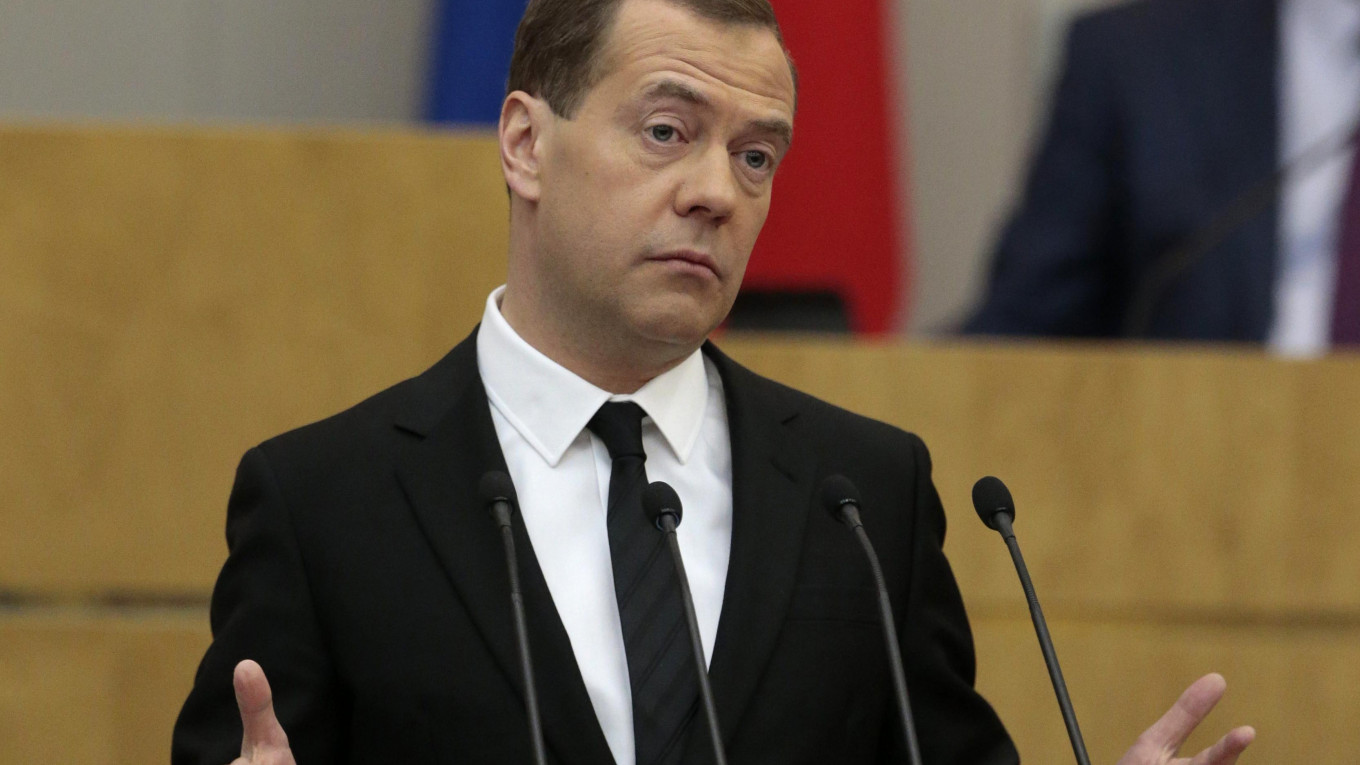On Thursday, Alexei Navalny’s Anti-Corruption Foundation (FBK) published its most in-depth report yet, revealing a vast empire of crooked charities and lavish homes that make up a “secret empire” allegedly controlled by Prime Minister Dmitry Medvedev.
As with the foundation’s past investigations, like a report about the prosecutor general’s supposed mafia ties or revelations that a deputy prime minister allegedly chartered jets to taxi around a pair of dogs, Navalny’s latest bombshell made media waves around the world.
In Russia, however, FBK’s investigations aren’t generating all the headlines they used to. Not only do Russia’s national television networks continue to ignore Navalny’s work, but some other media outlets that reported his investigations in the past are paying less attention now, according to a report by the independent TV station Dozhd.
On Friday, Dozhd published data, collected partly by the media-monitoring company Medialogia, about the number of reports in the media describing or commenting on FBK’s new investigation.
As expected, the national networks Pervyi Kanal, Rossiya-1, and NTV didn’t once mention the report on Medvedev. On cable, only the RBC news channel covered the story, mentioning it in 17 different reports. On the radio, FBK’s work made it to Ekho Moskvy, where it came up 33 times, and Biznes FM, where it was mentioned four times. Kommersant FM and Vesti FM, meanwhile, said nothing about the report.
Most surprisingly, only two newspapers, Novaya Gazeta and Vedomosti, carried stories about the FBK investigation. You didn’t read anything about it, if you only subscribe to Izvestia, Argumenty i Fakty, Moskovsky Komsomolets, Komsomolskaya Pravda, and Nezavisimaya Gazeta, or even more respected papers like Kommersant and RBC.
The liberal publication Novaya Gazeta called the FBK report “weighty and uncompromising,” crediting Navalny with revealing a basic political fact that’s far from obvious, the newspaper’s chief editor wrote: “Mr. Medvedev really is the number two man in the state.”
Online, the first Russian news websites to report FBK’s investigation were Mediazona, Republic, Ekho Moskvy, RBC, Tsargrad, and Meduza. About two and a half hours after these outlets covered the story, Kommersant — which is owned by Alisher Usmanov, whom Navalny names in his report on Medvedev — ran a story with the headline “Anti-Corruption Foundation Publishes Yet Another Investigation.” Later in the day, Forbes published a story about the real estate mentioned in the FBK study, and the tabloid Life merely reported the official response to the investigation by Natalia Timakova, Medvedev’s spokesperson.
Russia’s three biggest news agencies, RIA Novosti, TASS, and Interfax, waited until Timakova’s comments before publishing anything about Navalny’s report. Of these three outlets, only Interfax provided an actual hyperlink to FBK’s report, which it described as “an investigation of the Russian and foreign real estate that allegedly belongs to Medvedev.”
A Message from The Moscow Times:
Dear readers,
We are facing unprecedented challenges. Russia's Prosecutor General's Office has designated The Moscow Times as an "undesirable" organization, criminalizing our work and putting our staff at risk of prosecution. This follows our earlier unjust labeling as a "foreign agent."
These actions are direct attempts to silence independent journalism in Russia. The authorities claim our work "discredits the decisions of the Russian leadership." We see things differently: we strive to provide accurate, unbiased reporting on Russia.
We, the journalists of The Moscow Times, refuse to be silenced. But to continue our work, we need your help.
Your support, no matter how small, makes a world of difference. If you can, please support us monthly starting from just $2. It's quick to set up, and every contribution makes a significant impact.
By supporting The Moscow Times, you're defending open, independent journalism in the face of repression. Thank you for standing with us.
Remind me later.






